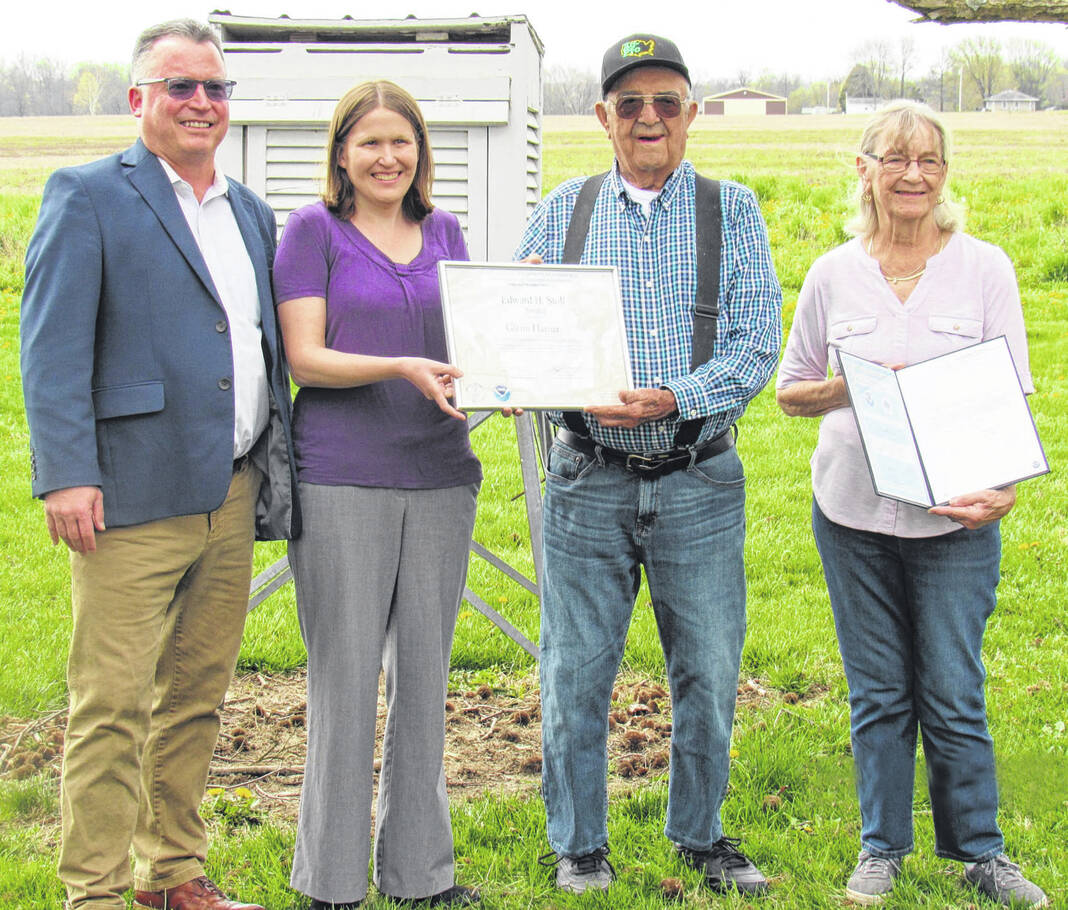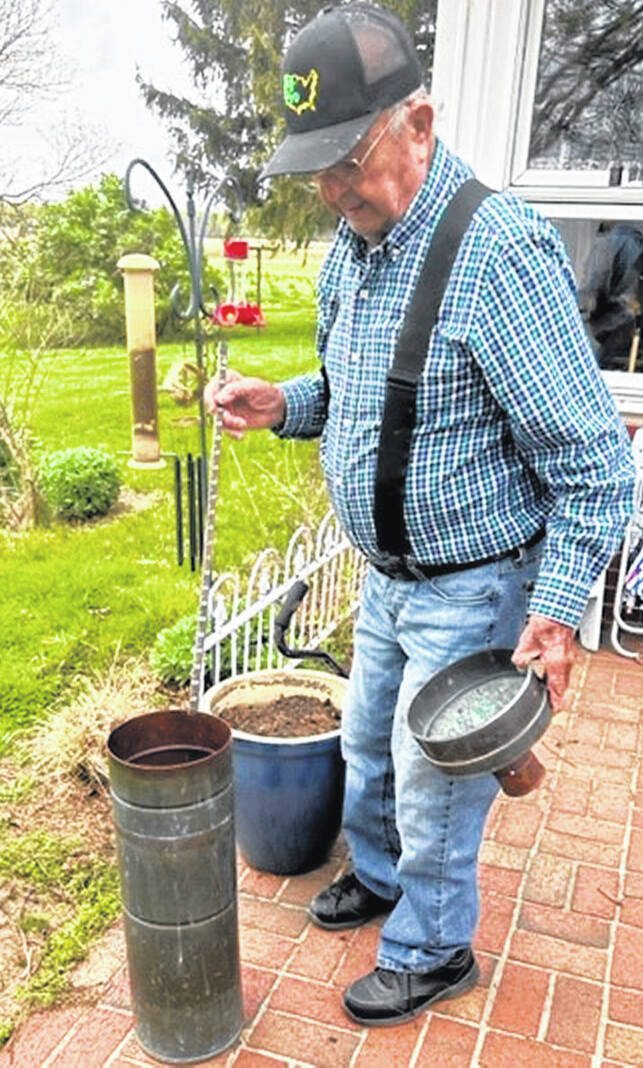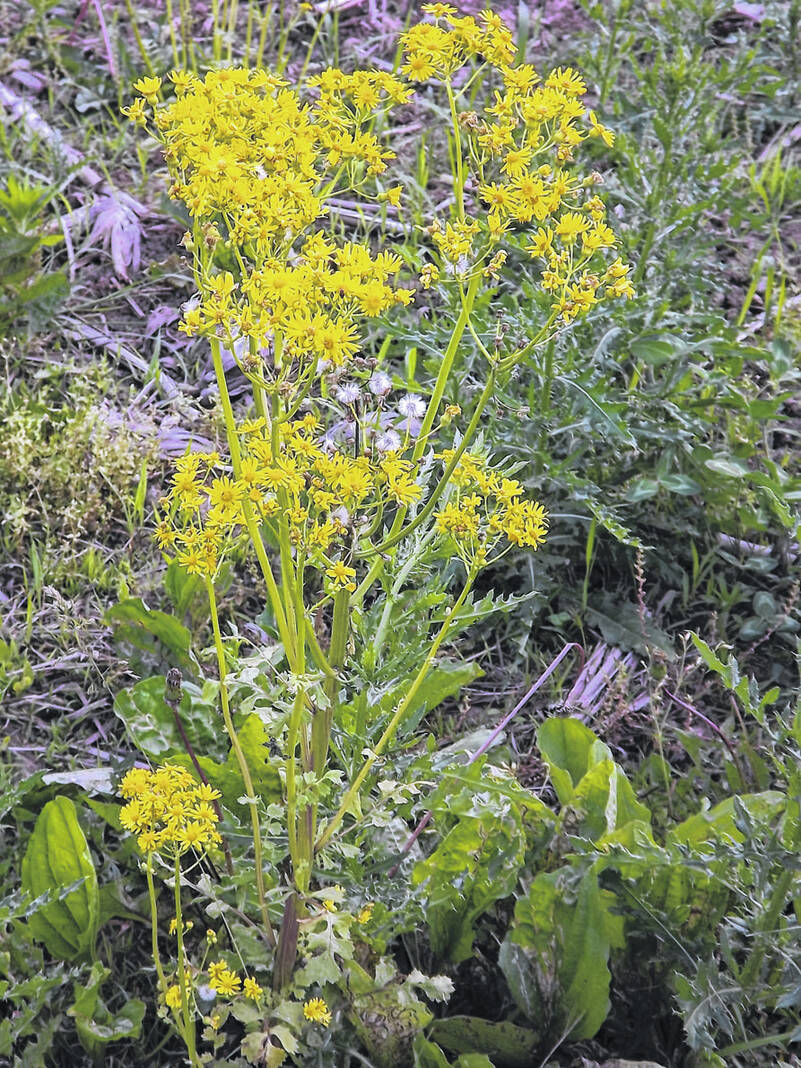
Submitted photos | Jerry Mahan
Glenn Harner was recently honored by the National Weather Service in Wilmington for helping to record weather data. Pictured are Thomas P. Johnstone, meteorologist-in-charge; Ashley Novak, meteorologist; Harner; and Phyllis Harner. Not pictured but present was James Gibson, observation program leader.

Glenn Harner with the instrument used to measure precipitation.

Cressleaf Groundsel
You may know him as a conservation no-till farmer, a fish farmer, former member of the Greene Soil and Water Conservation Board, a purple martin promoter, a father and husband, or a farmer interested in helping improve water quality.
But on April 14, Glenn Harner was honored by the National Weather Service in Wilmington for his part in recording weather data on his farm located southeast of Xenia on Winchester Road. Every day for the last 51 years he has recorded the high and low air temperature at approximately 6:30 p.m. Harner also measures each day the precipitation in rain, snow, or ice. He followed in his father’s (Ernest) footsteps and between them they have recorded temperatures and precipitation for a total of 94 years in Greene County. All the data is sent to the weather station in Wilmington, which is part of the NOAA (National Oceanic and Atmospheric Administration). Harner has planned for his niece to continue keeping weather data when he decides to give it up.
I asked Harner what changes he has seen in the weather in the 51 years he has been keeping data. He said he sees “milder winters and cooler summers.”
He has done all this weather data recording as a volunteer and is always willing to share his information with others. Congratulations to Harner and his wife, Phyllis, for their efforts in this endeavor.
Weeds on your lawn or farm
As is the case every year, the spring is a good year for weeds. We see some farm fields and parts of lawns covered with Purple Deadnettle, Henbit or Chickweed. Some farm fields are well populated with the look-alike yellow mustard called Cressleaf Groundsel.
All these weeds are winter annuals best controlled in the fall or early spring. For example, here are the control recommendations for Cressleaf Groundsel from the Purdue University website: “Herbicide applications for Cressleaf Groundsel control are most effective when applied to plants in the rosette stage. Plants that are larger, or bolting are very difficult to control with herbicides. Infestations in pastures can be controlled with 2,4-D or a combination of 2,4-D and dicamba applied to rosettes in the fall or early spring prior to bolting (Nice 2008). Producers should be aware that applications of these herbicides will also kill favorable broadleaves (legumes) that are present in pastures.” The website for more information on this weed is https://extension.entm.purdue.edu/newsletters/pestandcrop/article/cressleaf-groundsel-packera-glabella-5/. For weed ID you can also use https://www.weedimages.org/.
My main point here is these weeds are best controlled in the fall or early spring. The winter annuals grow in the cooler months of the year.
Jerry Mahan is a retired OSU Extension educator for agriculture and natural resources for Greene County. He can be reached at [email protected].

